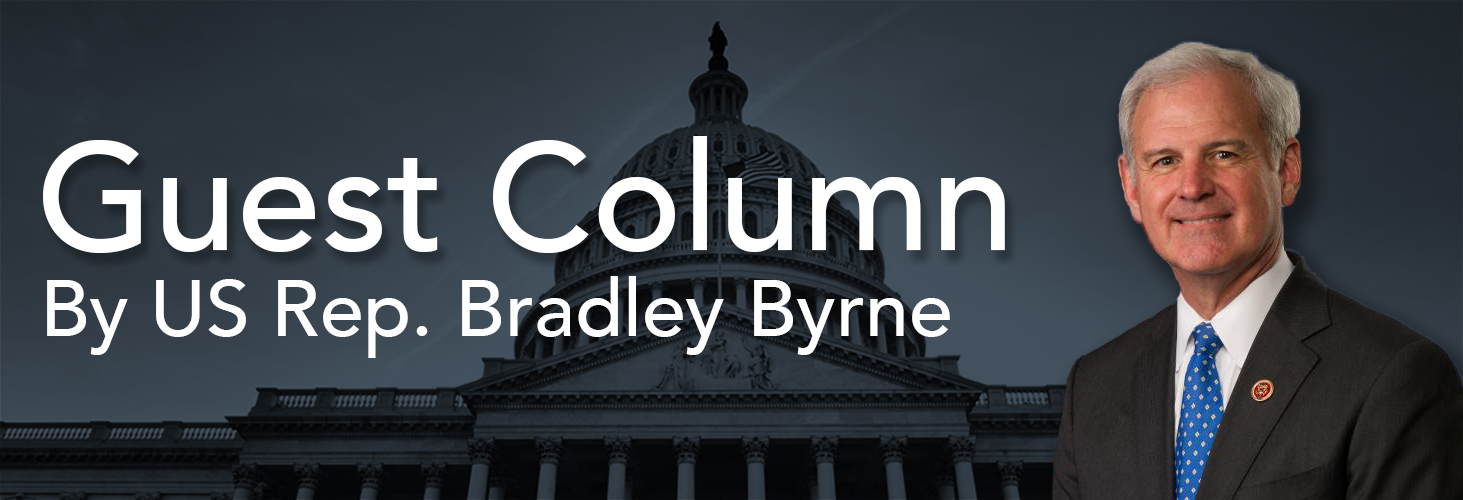By U.S. Representative Bradley Byrne (AL-1)
“I now find myself in the position that an unelected board in Washington, D.C., can just unilaterally determine that my American dream is over.” Those were the words of Chris Holmes, owner and operator of Firehouse Subs restaurants in the Florida panhandle, during a House Education and the Workforce Committee field hearing in Mobile.
As a member of the Committee, I worked with my colleagues to convene a field hearing in Mobile to examine the latest attempt by President Obama and his National Labor Relations Board (NLRB) to dramatically change our nation’s labor laws. The NLRB is an independent federal agency responsible for setting policies related to labor practices and unions.
Field hearings are just like any other Congressional hearings we would have in Washington except we have them back home in our local communities. They allow us to get closer to the actual people who are impacted by the policies that are being debated in Washington. In other words, it brings the issues down to Main Street.
That was especially important on this issue, which will have a direct impact on local small business owners and their employees. The hearing focused on a proposal to completely change the definition of a “joint-employer” under the National Labor Relations Act. While this issue may sound complicated, let me explain why it should matter to every American.
A lot of people in Southwest Alabama work for franchisees, which is someone who owns a local business that is an affiliate of a big national brand. For example, someone in Escambia County may own a local franchise of McDonalds or another fast food restaurant. The people who work for them are not employees of the fast food chain, but they are employees of a local small business person who owns that individual store.
The issue isn’t limited to just fast food. One of the people who testified at our field hearing in Mobile is a veteran who owns a residential painting company that is part of a larger franchise operation. These franchise relationships are really common and very important to the local economy and our national economy. They give thousands of individuals upward mobility and the opportunity to be successful business owners.
What the National Labor Relations Board is attempting to do is say that anybody who is currently a franchisee employee will no longer be an employee of that local business owner, but instead they will be the employee of the larger, national company. This fundamentally alters three decades of legal precedent. The Wall Street Journal explained that the NLRB is attempting to “radically rewrite U.S. labor law and upend thousands of business relationships.”
This decision could crush the dream of hardworking Americans, like Chris Holmes, who have always aspired to own a small business. This action by the NLRB could increase the liability of doing business and change the franchisor-franchisee relationship. Another franchisee testified that the NLRB’s action would give him “less independence and less control over the business that I worked so hard to build.”
Worst of all, this wouldn’t just be bad for small business owners, but it would hurt the thousands of people who work for small businesses. Instead of having a boss who knows you and understands your problems, now your boss may be a corporate CEO who has never even stepped foot in your local business.
President Obama and the NLRB have yet again sided with Big Labor over what is in the best interest of the American people, but Congress won’t stand by idly. I look forward to working with my colleagues on the Education and the Workforce Committee to roll back this flawed decision and stand up for hardworking Americans.
Congressman Bradley Byrne represents Alabama’s First Congressional District.














































